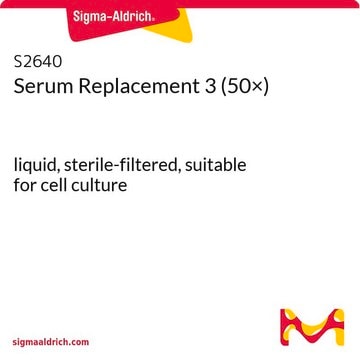746398
Sodium chloride
anhydrous, Redi-Dri™, free-flowing, ACS reagent, ≥99%
Synonym(s):
Halite, NaCl
About This Item
Recommended Products
grade
ACS reagent
anhydrous
Quality Level
Agency
suitable for GB 5009.253-2016
vapor pressure
1.33 hPa ( 865 °C)
product line
Redi-Dri™
Assay
≥99%
form
powder
quality
free-flowing
impurities
≤0.005% Insoluble matter
pH
5.0-9.0 (25 °C, 5% in solution)
mp
801 °C (lit.)
anion traces
bromide (Br-): ≤0.01%
chlorate, nitrate (as NO3-): ≤0.003%
iodide (I-): ≤0.002%
phosphate (PO43-): ≤5 ppm
sulfate (SO42-): ≤0.004%
cation traces
Ba:, passes test
Ca: ≤0.002%
Fe: ≤2 ppm
K: ≤0.005%
Mg: ≤0.001%
heavy metals: ≤5 ppm (by ICP-OES)
SMILES string
[Na+].[Cl-]
InChI
1S/ClH.Na/h1H;/q;+1/p-1
InChI key
FAPWRFPIFSIZLT-UHFFFAOYSA-M
Looking for similar products? Visit Product Comparison Guide
General description
Application
Features and Benefits
- Increased efficiency – Eliminate time and effort of loosening hardened powders
- Safety – Avoid risks of using tools of force to break up clumps
- Economy – Faster preparation and solvation increase productivity and reduce costs
- Assured quality – Excellent, expert-tested quality with no anti-caking agents
- Flexible volumes – Available from research amounts to scale-up quantities
Legal Information
Storage Class Code
13 - Non Combustible Solids
WGK
WGK 1
Flash Point(F)
Not applicable
Flash Point(C)
Not applicable
Certificates of Analysis (COA)
Search for Certificates of Analysis (COA) by entering the products Lot/Batch Number. Lot and Batch Numbers can be found on a product’s label following the words ‘Lot’ or ‘Batch’.
Already Own This Product?
Find documentation for the products that you have recently purchased in the Document Library.
Customers Also Viewed
Our team of scientists has experience in all areas of research including Life Science, Material Science, Chemical Synthesis, Chromatography, Analytical and many others.
Contact Technical Service




